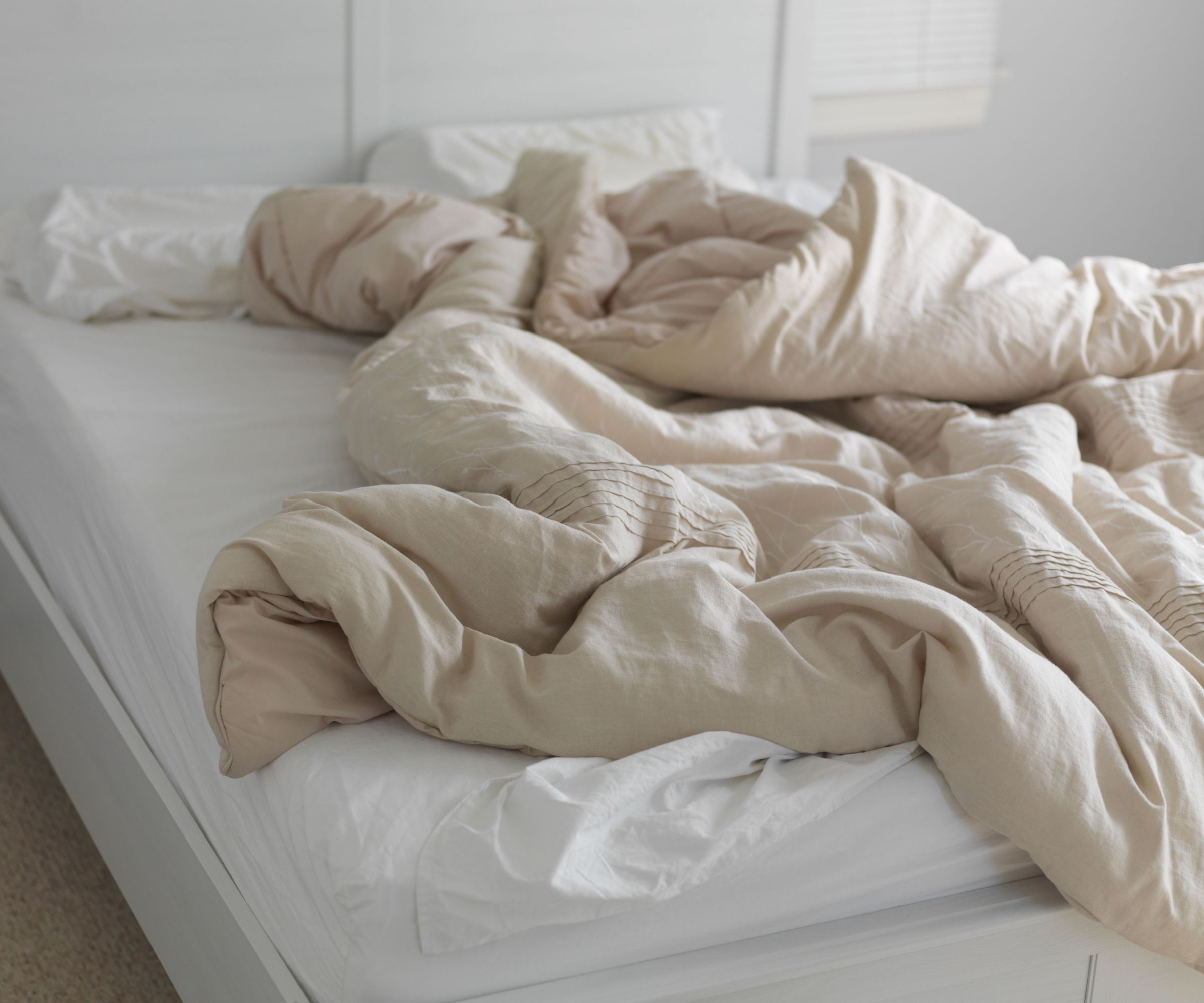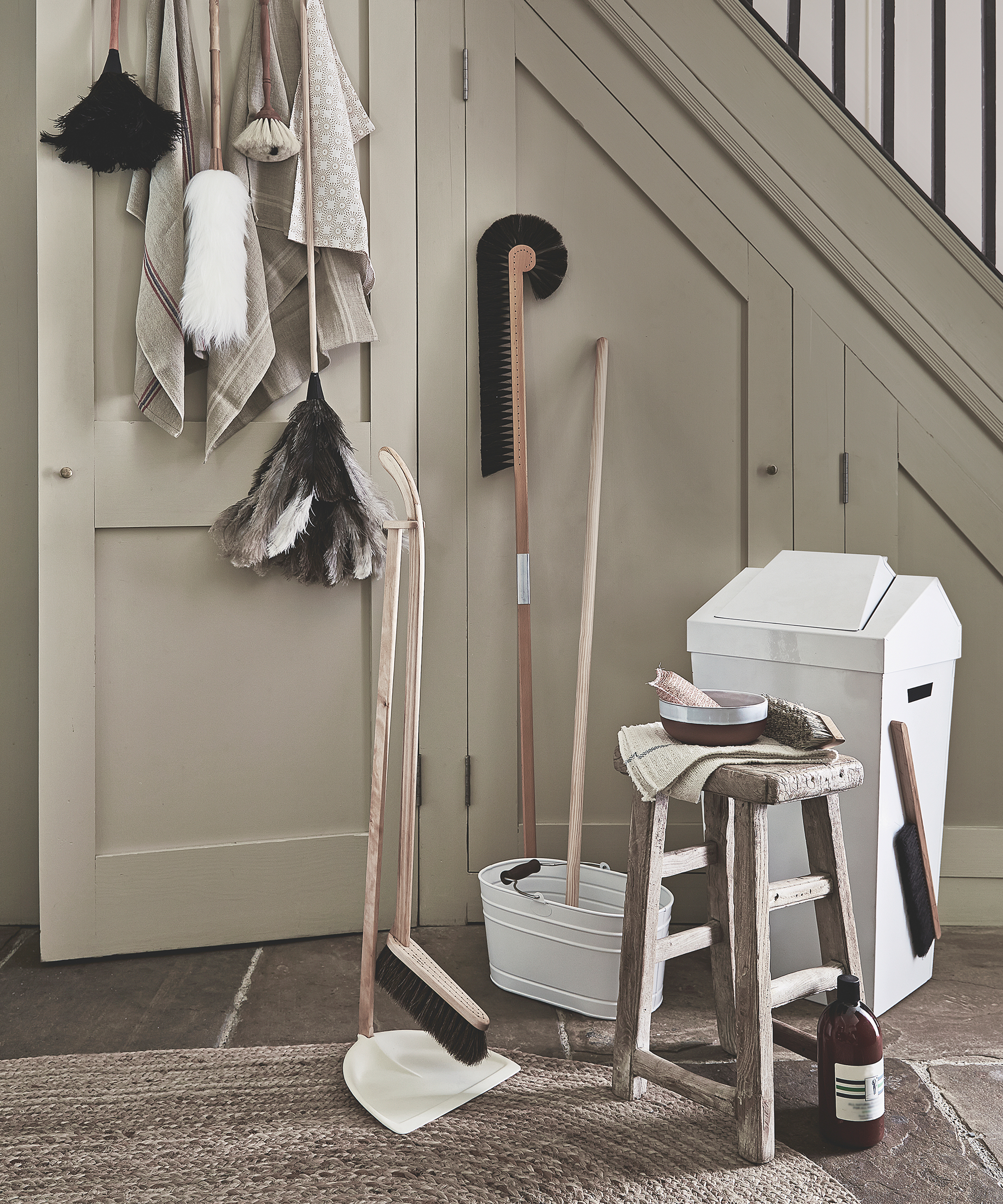Can a messy house cause depression? Experts have their say and explain how to get a start on tidying
Did you know your mental health was linked to the spaces around you? Experts explain why an untidy home might be impacting your mood


Keeping a house neat and tidy is not as easy for some as it is for others, no matter how many decluttering articles they read. While each person's level of organization and tidiness changes, evidence suggests that a house in too much disarray could have a negative effect on your mental health.
For many, decluttering tips can be overwhelming – especially if clutter and dirt have unintentionally built up over a period of time.
When household clutter begins to interfere with day-to-day life, it may be a sign that your home needs some help. Luckily, there are a few ways to declutter your home when you feel overwhelmed, and asking for help is a great first step.
Here, experts weigh in on whether or not a messy house can cause depression, and offer some solutions to help start getting your house, and your mind, in shape again.
Can a dirty house cause depression?
While studies have shown that there is a direct link between a messy or dirty room and depression. This is not surprising considering that it has been proven that decluttering can change your life.
An untidy space is not a definitive symptom of ill-mental health, however, rather, it is a possible warning sign – particularly if it overwhelms you to the point of inaction and lack of motivation.
It is important to note that only a medical professional can diagnose a mental health disorder such as depression or anxiety.

'A dirty or untidy house can cause depression and/or make low moods worse,' says Phillip Hord, co-founder of Horderly Home Organizing. 'We aren't saying this is the only cause of this but it can be a contributor.
'Conversely, depression can easily cause a dirty/untidy house. If you see any signs of this personally or of a friend/family member, don't be afraid to offer help or suggest hiring a professional to come in if they are overwhelmed with the thought of tackling it on their own.'
One of the main ways to help tackle an untidy or dirty house caused by a low mood is to accept help and take some small first steps towards improvement. You never know, a clean house might make you happier, at least just a little.

Most of the time people can think about how to keep a house from getting messy and take preventative measures. If they are overwhelmed, however, it is important to recognize that this may not be as easy.
Kim Grubbs, psychologist and founder of Downsize Matters explains that there can be a significant amount of emotional weight attached to decluttering and tidying a home. 'I think most of us will become depressed or despondent when faced with a house full of clutter because the solution to amend it seems impossible. Also, most people have emotional attachments to their stuff and anticipate the loss of treasured items before they begin the decluttering process.
'Since an independent source does not have the same attachment to someone else’s belongings, they can make headway quickly in the clearing. I think it’s imperative, however, to have some skill at being able to discuss the issues of grief and loss before beginning the task of decluttering and downsizing. Reframing the process as the path to gaining more independence from the “prison” of too much stuff will create a shift in the level of willingness to begin the process.'
How to start getting an untidy room in shape again

One of the first steps in tidying and decluttering a home when you are overwhelmed is to consider which areas of your home are most important. It may be that your kitchen is the highest priority, or even your bedroom or living room if that is where you spend most of your time. Regardless, it is a good idea to start with a smaller area and set reasonable expectations, try to do this with somebody who can lend a helping hand if you can.
'My best suggestion for any type of “lightening the load” project is to begin by throwing away everything that is trash, in only one location, before moving on to another location,' Kim suggests. 'Closets and laundry rooms are great choices as places to begin.'
Another important step is to avoid comparing your home to other people, This is one of the biggest decluttering mistakes, especially with the rise of seemingly 'perfect' social media accounts dedicated to maintaining picture-perfect spaces. Spend time thinking about what has worked for you in the past and what is not working now. Your home does not have to be completely spotless to help you feel a little bit better.
If you feel like you need help with your mental health, there are plenty of outlets available across the US including Mental Health America, a charity that can help direct you to the best service for you, and The National Council for Mental Wellbeing, which can be used to locate your local mental health centers.
Does a clean house help mental health?
Research suggests that your physical surroundings can have a huge impact on your mental well-being, with untidy or dirty homes negatively impacting your mental well-being. One way to help combat poor mental health is to take steps to improve your surroundings, whether you do this yourself or have help to make your space the best it can be.
Sign up to the Homes & Gardens newsletter
Design expertise in your inbox – from inspiring decorating ideas and beautiful celebrity homes to practical gardening advice and shopping round-ups.

Chiana has been at Homes & Gardens for two years and is our resident 'queen' of non-toxic living. She spends most of her time producing content for the Solved section of the website, helping readers get the most out of their homes through clever decluttering, cleaning, and tidying tips. She was named one of Fixr's top home improvement journalists in 2024.
-
 Charred little gem with saffron dressing
Charred little gem with saffron dressingThis recipe with charred little gem is both easy to make and sure to impress guests. It's the perfect side for fresh spring menus
By Alice Hart
-
 Grilled asparagus with herb and pickled red onion
Grilled asparagus with herb and pickled red onionThis grilled asparagus couldn't be easier, and it's a wonderful way to get the best flavor from our favorite spring veg. It's perfect alongside fish or lamb
By Alice Hart